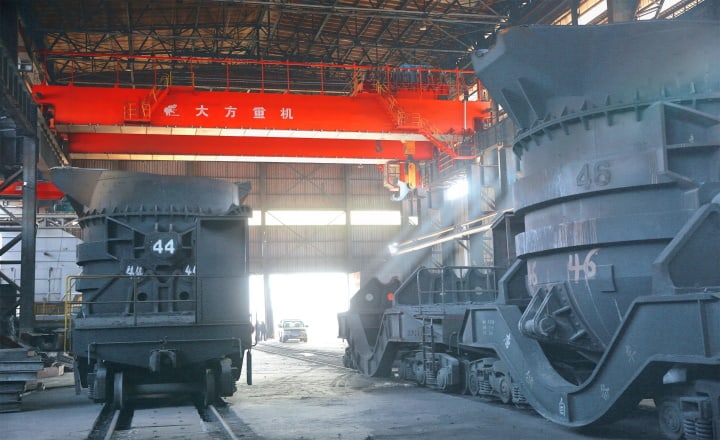In the ever-evolving landscape of the manufacturing industry, the integration of Internet of Things (IoT) and Artificial Intelligence (AI) has ushered in a new era: Smart Manufacturing. This transformative synergy between IoT and AI technologies is reshaping factories worldwide, optimizing production processes, and enhancing overall efficiency.
The Rise of Smart Manufacturing
Smart manufacturing represents a paradigm shift in the way factories operate. Traditional manufacturing processes are giving way to intelligent, interconnected systems where machines communicate, analyze data, and make informed decisions in real-time. This evolution is made possible by the seamless integration of IoT devices and AI algorithms.
Real-Time Data Analytics
One of the cornerstones of smart manufacturing is the ability to harness vast amounts of data generated by IoT sensors embedded in machinery and equipment. These sensors collect real-time data on various parameters such as temperature, pressure, and production output. AI algorithms process this data instantly, providing actionable insights to manufacturers.
Predictive Maintenance for Enhanced Efficiency
Predictive maintenance, powered by AI, has become a game-changer for factories. Instead of following fixed schedules for maintenance routines, IoT sensors continuously monitor the condition of machinery. AI algorithms analyze this data to predict potential breakdowns or maintenance needs accurately. As a result, machinery downtime is minimized, leading to increased productivity and cost savings.
Automation and Smart Decision Making
IoT and AI enable automation on a sophisticated level. Smart manufacturing systems use AI algorithms to make real-time decisions based on the data collected from IoT sensors. For instance, production lines can automatically adjust their speed and output based on demand fluctuations, ensuring optimal resource utilization. Moreover, AI-driven robotics are being employed in tasks that require precision and speed, further enhancing production efficiency.
Case Studies: Real-Life Applications of Smart Manufacturing
Case Study 1: Automotive Industry
In the automotive sector, smart manufacturing techniques have revolutionized assembly lines. IoT sensors track the progress of each vehicle, ensuring that every component is installed correctly. AI algorithms analyze this data, identifying patterns and optimizing the assembly process. This has led to a significant reduction in defects and recalls, enhancing both quality and customer satisfaction.
Case Study 2: Pharmaceutical Manufacturing
Pharmaceutical companies are leveraging smart manufacturing to ensure the precision and consistency of their products. IoT devices monitor various parameters during drug manufacturing, while AI algorithms analyze the data to maintain the perfect conditions required for each batch. This level of control has resulted in a higher quality of pharmaceuticals reaching the market.
Case Study 3: IoT-Enabled Overhead Cranes in General Manufacturing
IoT sensors installed on overhead cranes collect data on load weight, machinery temperature, and operational patterns. AI algorithms process this data, enabling predictive maintenance and optimizing crane movements. These smart cranes adjust their operations in real-time, ensuring seamless material handling in manufacturing plants.
Case Study 4: AI-Driven Overhead Cranes in Steel Mills
IoT sensors on overhead cranes in steel mills monitor factors such as molten metal temperature and ladle positioning. AI algorithms process this data, making real-time adjustments to crane movements. This precision ensures that molten metal is poured accurately, preventing wastage and improving the quality of steel products.

Case Study 5: IoT-Integrated Overhead Cranes in Paper Mills
IoT sensors on overhead cranes in paper mills monitor paper roll dimensions, weight, and integrity. AI algorithms analyze this data, optimizing crane movements during the loading and unloading of paper rolls. By ensuring careful handling, these smart cranes minimize paper wastage and reduce production costs.
Dafang Crane’s Technological Contribution: Setting Industry Standards
Dafang Crane stands as a beacon of innovation in the crane industry. Their contribution to IoT and AI technologies has set industry standards, ensuring safer, more efficient operations across various sectors. By developing intelligent overhead cranes tailored for specific industries, Dafang Crane has empowered manufacturing, steel, paper, and waste-to-energy sectors to achieve new heights of productivity while prioritizing safety and sustainability.
Challenges and Future Prospects
While smart manufacturing holds immense promise, there are challenges to overcome. Security concerns regarding data breaches and cyber-attacks on interconnected systems are paramount. Additionally, there is a need for a skilled workforce capable of managing and optimizing these advanced technologies.
Looking ahead, the future of smart manufacturing is incredibly promising. As IoT and AI technologies continue to advance, factories will become even more efficient, sustainable, and adaptable. Machine learning algorithms will become more sophisticated, enabling factories to make incredibly precise predictions and decisions in real-time.
Smart manufacturing, driven by the integration of IoT and AI, is not just a technological advancement; it is a revolution that is reshaping the manufacturing landscape. Real-time data analytics, predictive maintenance, automation, and intelligent decision-making are at the core of this transformation. As we move forward, embracing these technologies and addressing their challenges will pave the way for a future where factories operate at unparalleled levels of efficiency, ushering in a new era of manufacturing excellence.

